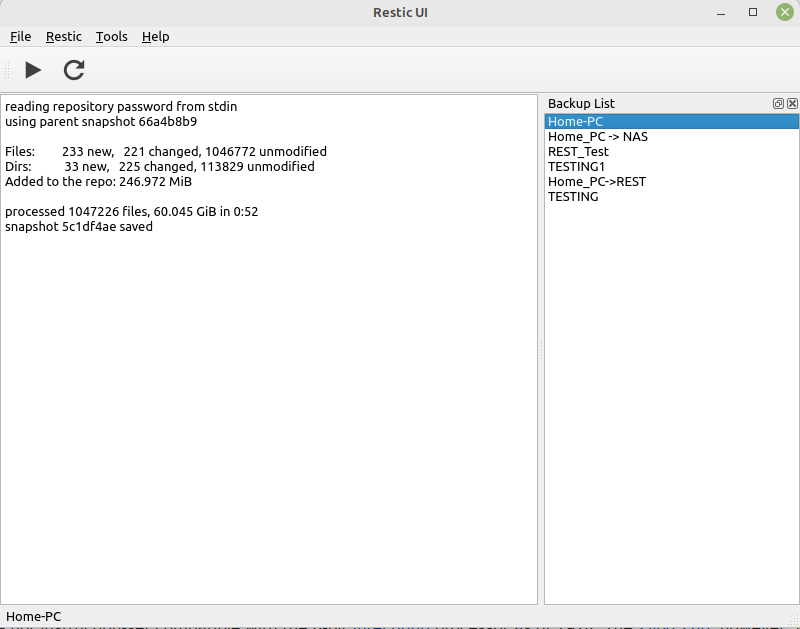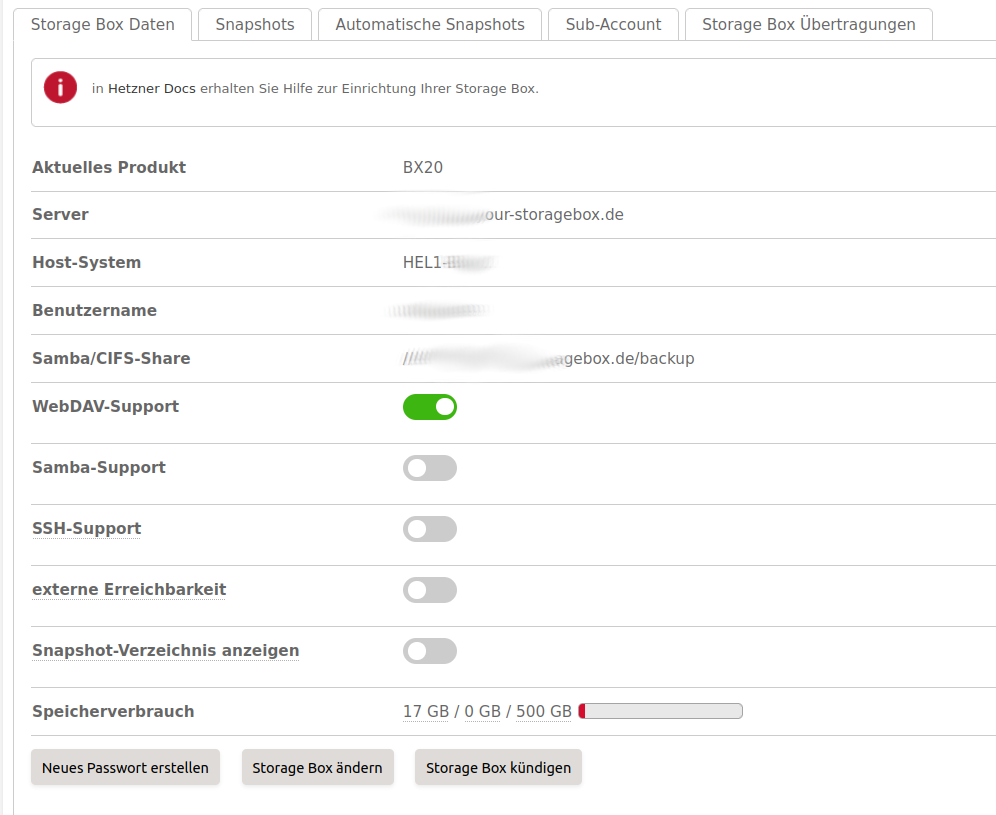Vorstellung Restic UI Flask
-
Ich habe ja damals mit PyWebIO ein Restic UI gebaut. Das gibt es auch auf gitlab.com
Dieses PyWebIO ist schon ein tolles Tool, weil man den Python Code nicht verlässt. Aber, es hat zu viele Einschränkungen, die man dann nicht, oder nur sehr mühsam umgehen kann. Also war ich auf der Suche nach neuen Herausforderungen

Zwei Frameworks die ich kannte, waren Django und Flask. Meine Wahl fiel auf Flask. Und nun fand ich mich wieder in Dingen, die ich vor langer Zeit zuletzt benutzt hatte. HTML, CSS und Javascript. Ich musste mich also wieder durch viele Themengebiete wühlen. Dank der Hilfe von ChatGPT, der mir einiges wieder erklären musste, habe ich dann aber mein Tool wieder so hinbekommen, wie ich es gerne haben wollte.
Ich wollte es heute mal anhand einiger Screenshots vorstellen. Die Funktionalität ist wie beim alten Tool. Habe es aber ein wenig angepasst und viel mehr Funktionen ins Dashboard gepackt. Somit ist von dort aus, fast alles zu erreichen.
Dashboard
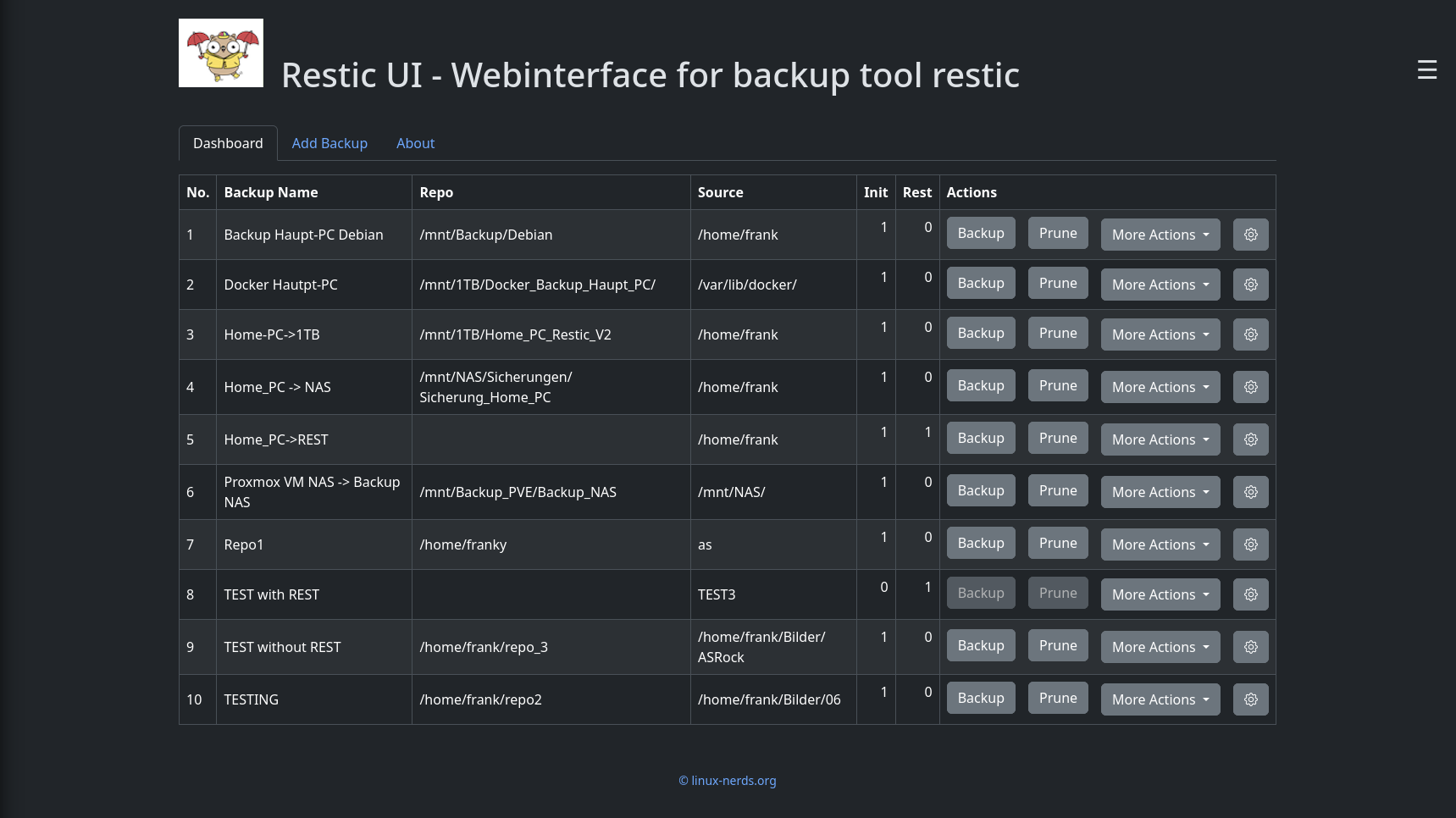
Dashboard mit Hamburger Menü
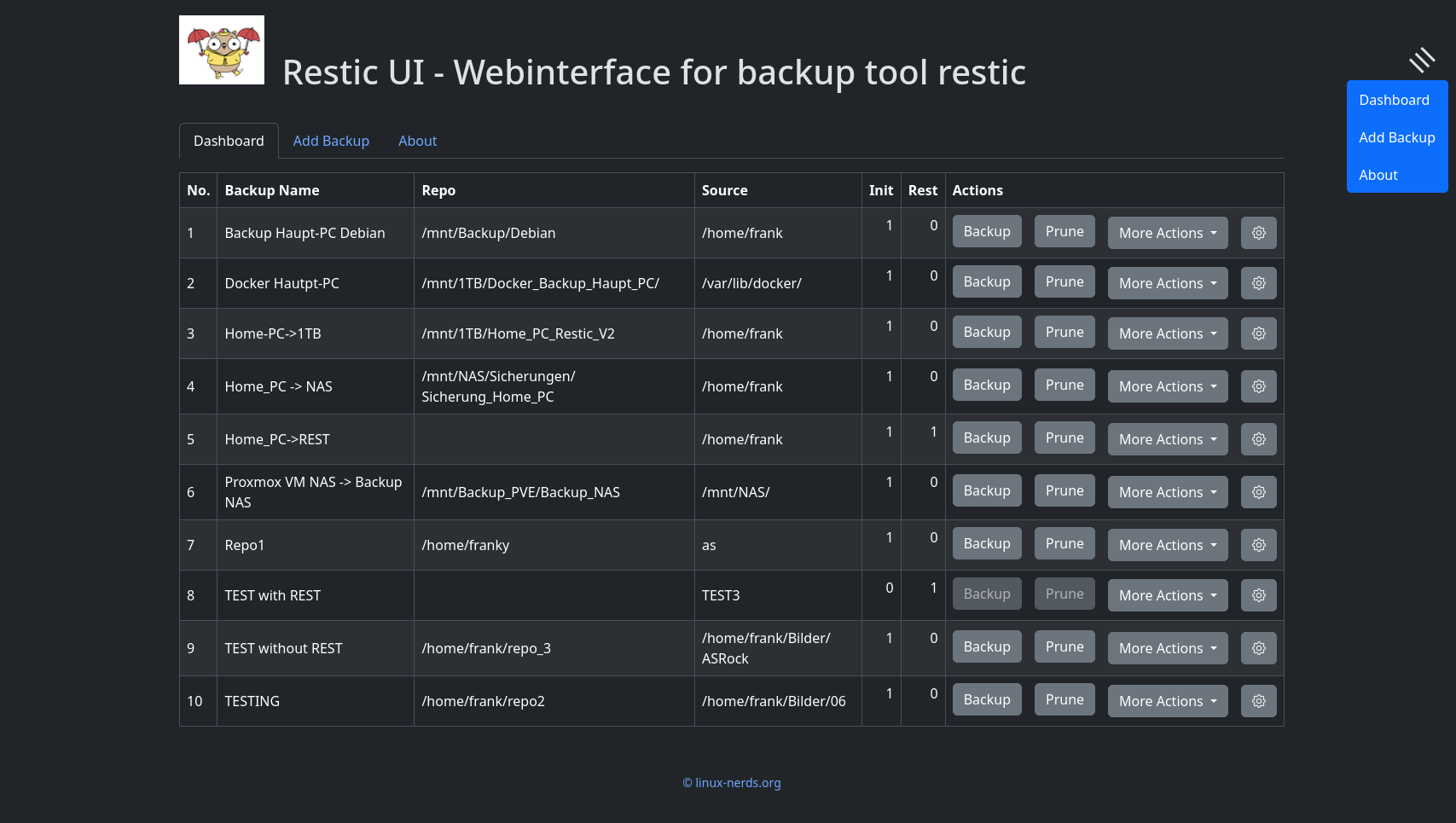
Add Backup
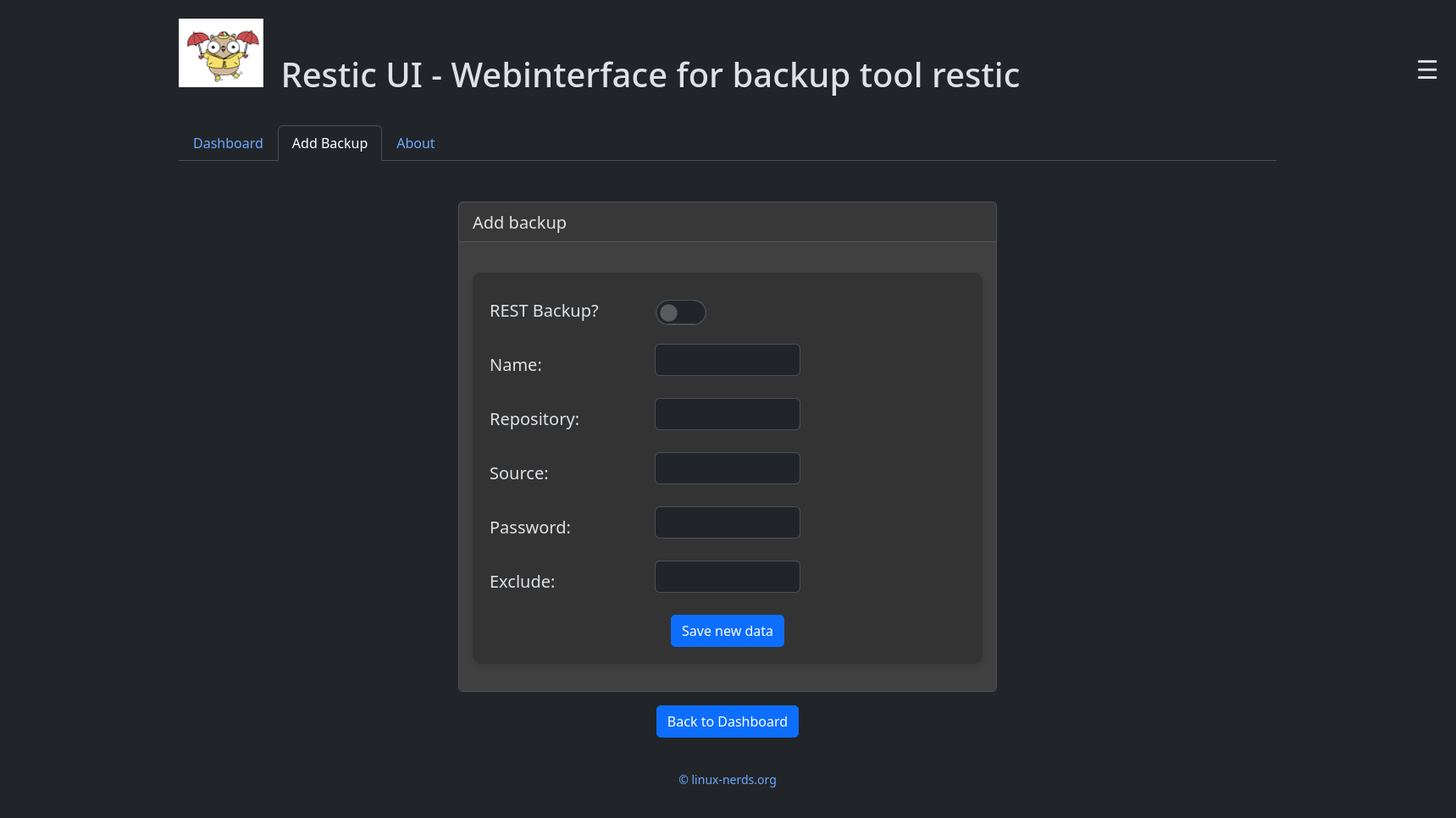
Add Backup with REST
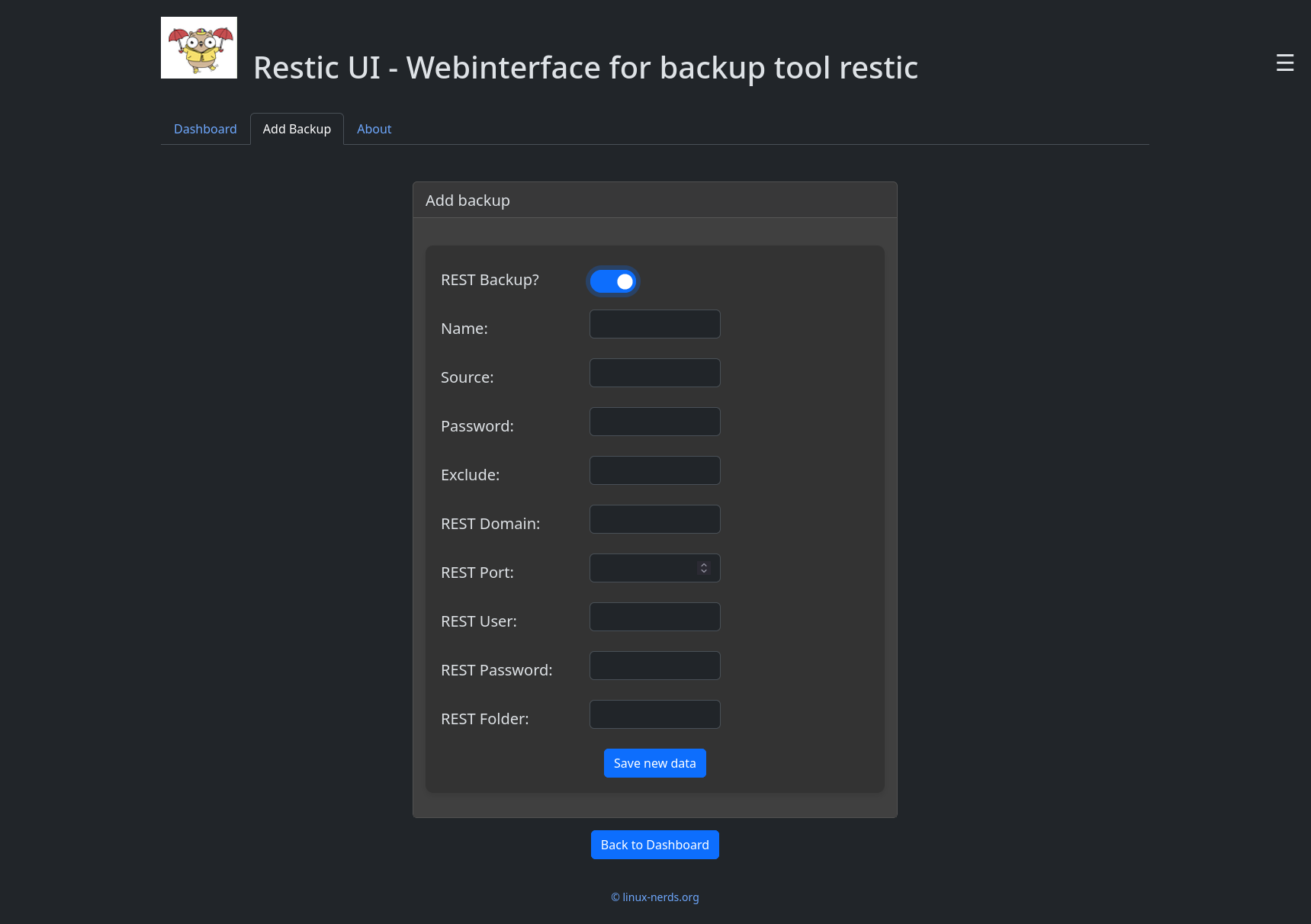
Edit Backup
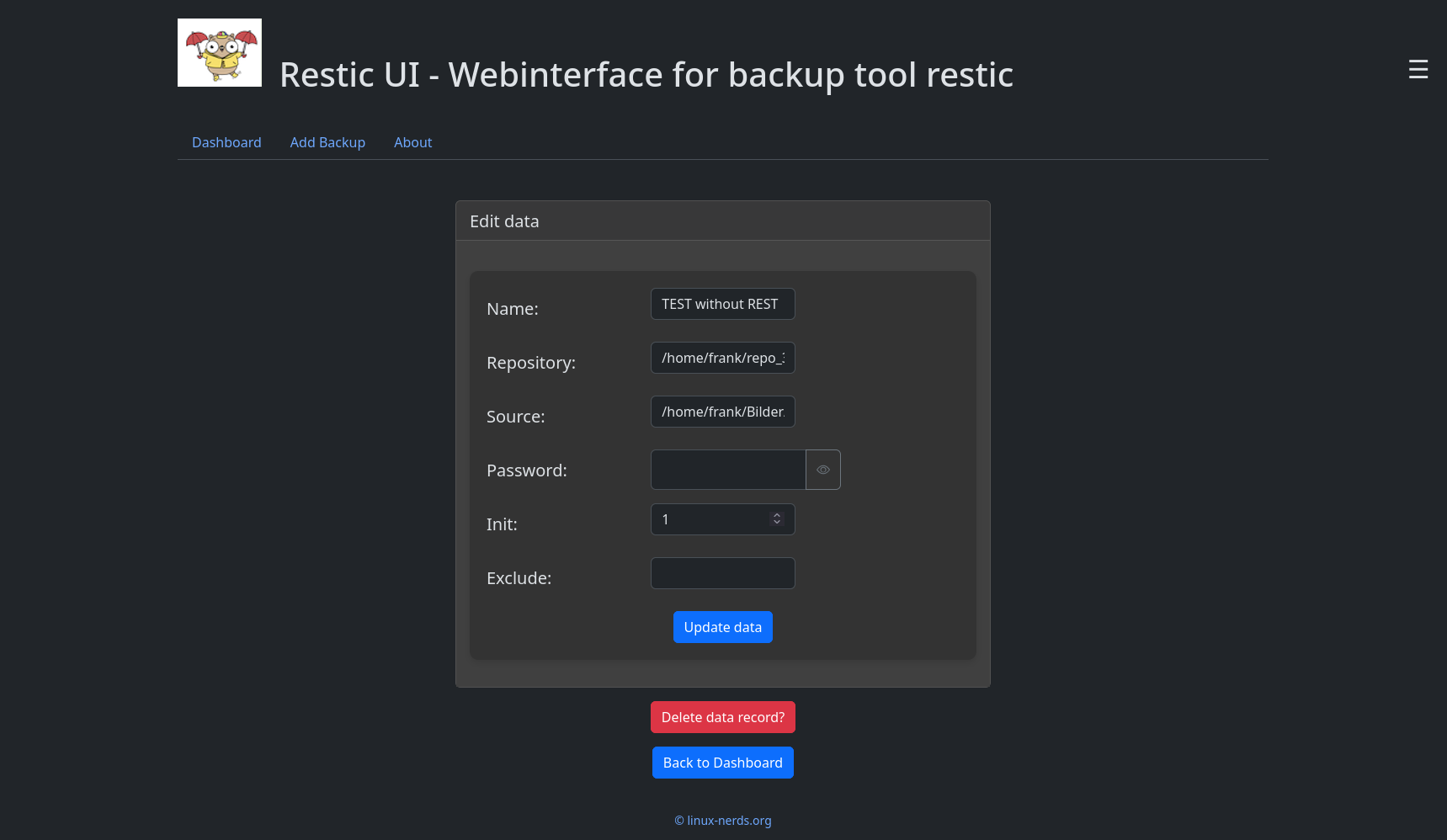
About
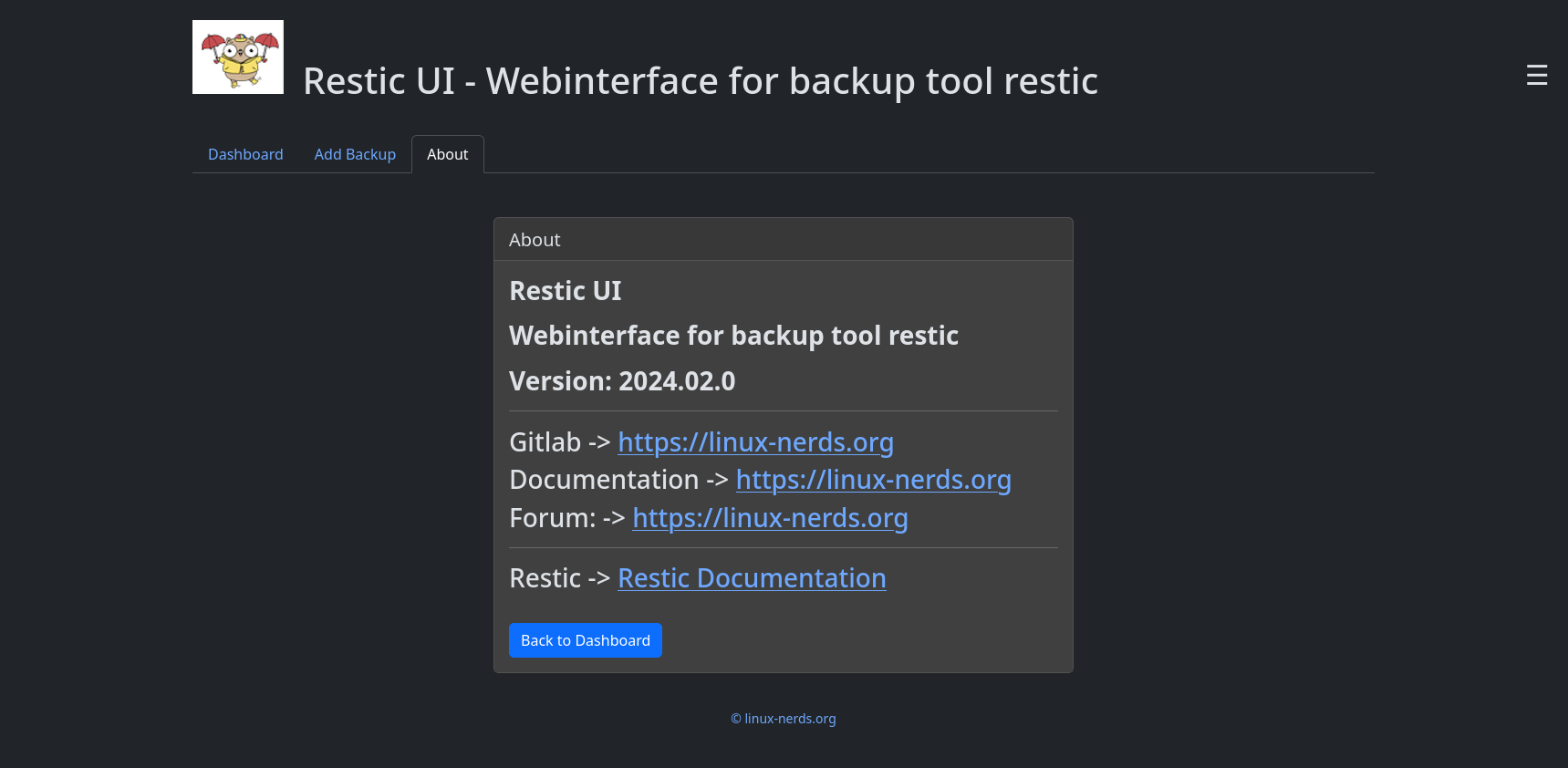
Allgemeines
Das Tool ist unter
https://127.0.0.1:5050/dashboardmit selbstsignierten Zertifikaten erreichbar.
Restic UI Flask nutzt als Backend zur Datenspeicherung eine Redis Datenbank. Ja, ist etwas auf mich zugeschnitten, ich habe hier immer eine Redis DB laufen, noch für andere Sachen.
ToDo
Den Code sauber machen, da liegt noch zu viel Müll rum. Danch werde ich den, wenn ich alles nochmal auf Fehler geprüft habe, auf Gitlab veröffentlichen. Vielleicht hilft es dem ein oder anderen

Ich mach mal mit OBS ein Video davon.
